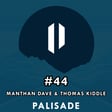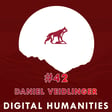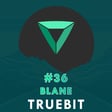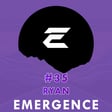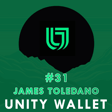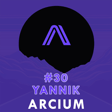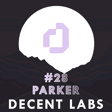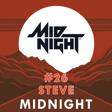
#27 - Blockchain Gaming and Web3 Communities with Jon Allen
Jon Allen is the Founder of Game7, a company dedicated to advancing the web3 and blockchain gaming ecosystem. Jon is a long time cryptocurrency believer and former military officer.
The Role of DAOs in Gaming
Allen describes DAOs as transformative tools that can shift the paradigm from traditional, top-down governance models in gaming to more inclusive and democratic structures. This shift can potentially address long-standing issues in the gaming community, such as unfair revenue distribution, lack of transparency, and limited player influence on game development. DAOs empower players by giving them a stake in the decision-making processes, fostering a deeper connection between developers and their communities.
One of the core aspects of Game7's philosophy is the focus on community. Allen emphasizes the importance of building games that provide more than just entertainment; they need to foster engagement, interaction, and community building. This is achieved through the DAO structure, where each player's input can directly influence the game's direction. The communal efforts in DAOs can significantly enhance player engagement and satisfaction, promoting a model where players feel genuinely invested in the game's outcomes.
Challenges of Blockchain in Gaming
Despite the optimism surrounding blockchain in gaming, challenges remain. Issues such as scalability, user experience, and the integration of blockchain technology without compromising gameplay quality are significant hurdles. However, Allen is confident that these can be addressed through continuous innovation and community feedback. The potential benefits, such as enhanced security, transparency, and new economic models within gaming, present compelling reasons to pursue this integration.
Future Directions
Looking ahead, Allen envisions a future where blockchain is seamlessly integrated into the gaming industry, transcending its current niche status. The focus will likely shift toward enhancing user experience and ensuring that blockchain serves as a beneficial addition to gaming, rather than a cumbersome requirement. As Game7 continues to develop and implement DAOs within games, the broader gaming industry may look to these models as benchmarks for combining technology with user-centric governance.
This podcast is fueled by Aesir, the smartest crypto trading bot platform on the market. Sign up and use code AESIRPOT20 at checkout for 20% OFF your subscription.
